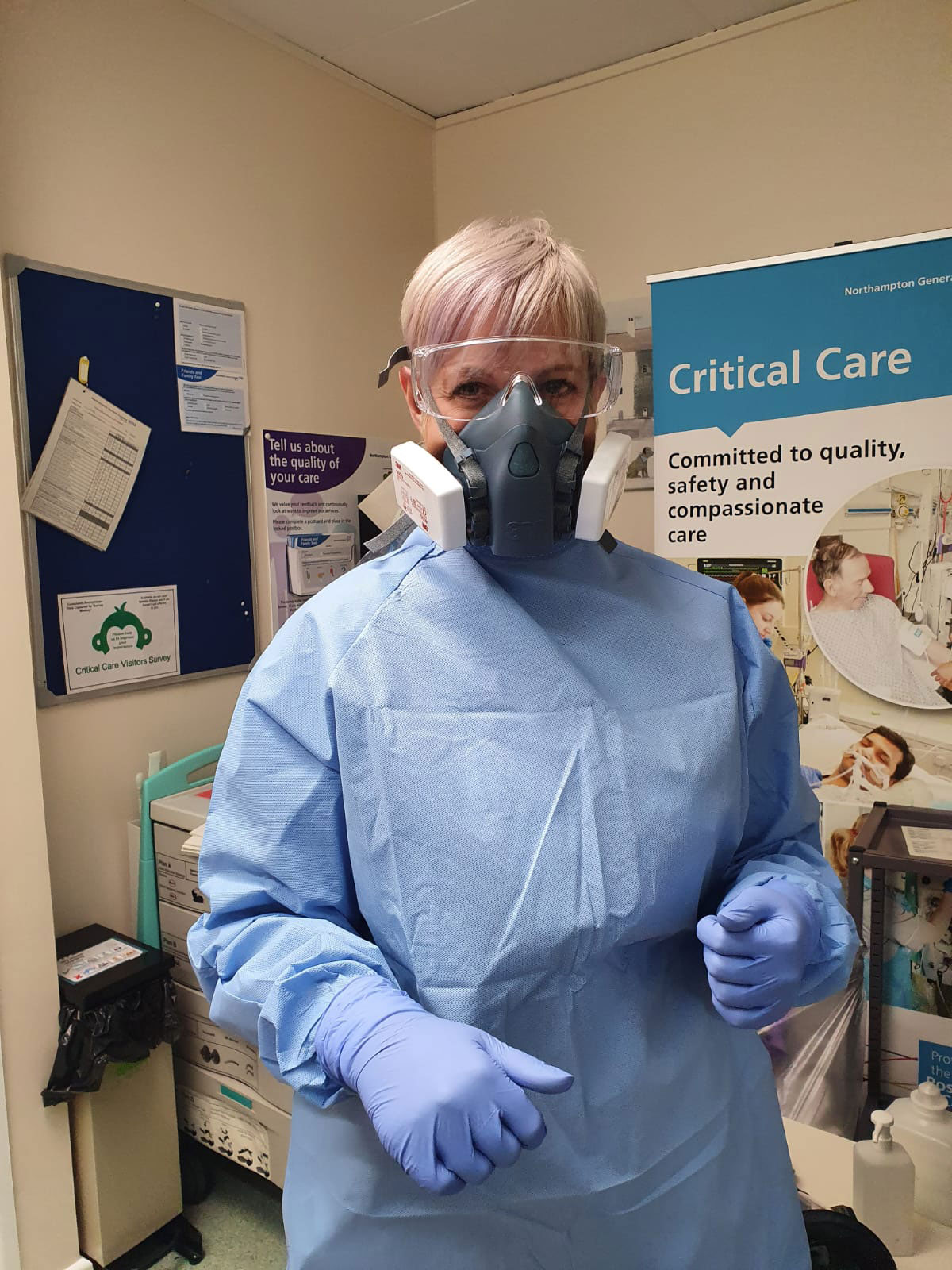 Introduction
Introduction
My first role in dentistry was when I was aged seventeen – I began working at an orthodontic practice in a Saturday job. I worked there for about seven years, working on reception and developing X-rays, but I never worked in the surgery. After that, I went on to work in childcare, but I continued the Saturday job because I enjoyed it so much.
In 2002, I decided I wanted a career change from childcare. At this time, my mum who was a practice manager, was looking for a new receptionist. I decided to give it a go – after all, I’d done it before! After a few weeks, the principal dentist/owner asked me to go into the surgery.
I qualified with the National Certificate in 2005, then in radiography in 2007. I was very lucky in practice and gained a lot of experience in orthodontics, implants and oral surgery. It was the oral surgery side of things I enjoyed the most, so when I saw an advert for a job in maxillofacial, I knew I had to go for it. I started work for the maxillofacial and orthodontics outpatient department at Northampton General Hospital in July 2008, and I’ve been there ever since.
We generally share out all the duties within the department. This includes complex orthodontics as well as new & review clinics – including TMJ, teeth, oral referrals, oral cancers, minor oral surgery lists, trauma, skin surgery, prosthodontics and X-rays. On a typical day, it may be that in the morning we are on X-ray and then in the afternoon we are assisting on the minor oral surgery list. It’s varied, and that’s why it works so well. We only treat patients under local anaesthetic, and we are cross-trained now so that we can assist in the skin surgery list (where we remove skin cancers on the face/head and then reconstruct the site).
Did you volunteer for the role?
No, is the short answer. We knew redeployment was coming, but at that point we had no idea what we would be doing. We were told as a group by one of the directors of nursing on the Monday that redeployment was this week and we were being sent to work in critical care with positive Covid-19 ventilated patients. Some of us were working in ITU by the Wednesday, so it was very quick from being told.
Tell us about your new role.
We work now as healthcare assistants (HCAs) alongside the critical care nurses. Lots of other nurses have been redeployed too, so there might be a nurse from the pain clinic or the diabetes centre working alongside us.
As HCAs, we help the ITU nurses with basic patient care. This includes washing patients, changing the bed linen, undertaking eye and mouth care, holding patients’ hands, and talking to patients. I’ve also learned basic observations and how to record this on the charts. We help roll patients and look for pressure sores. We’ve also been shown how to prone patients, although I’ve not helped with this yet.
How have your duties changed?
The biggest change is that we are actively looking after very poorly patients. I’ve never worked on a ward before, let alone critical care. We’ve gone from working Monday to Friday to shift work, which is 12.5hrs either days or nights. There are three shifts a week, including weekends.
What new skills have you gained in this new role?
It’s difficult to quantify new skills, as most things I’ve seen and done can’t really be transferred to my regular job. I’ve helped take blood gases and helped set up feeding bottles for nasogastric tubes. I’ve watched central lines going into the neck and patients being ventilated. I’ve seen drugs being prepared and learned what they are used for. One thing I have gained is a better understanding of other roles within my hospital.
Describe a typical day/session in your new role.
Our day starts at 7.15am. We have to be in scrubs and ready to start our shift. We then find out where we will be working – either ITU, HDU or theatres. Our main theatres have been converted to contain pods, each with six pods in total (and the potential for three patients per pod).
If we are helping inside ITU, we have to don full PPE. Once inside ITU, we go to our allocated bed spaces and help with whatever is needed. We may be asked to help in another bed space with another patient – if so, we wash our first layer of gloves and then put on a clean apron and new gloves.
We do whatever we can to help, really. At times, it doesn’t feel like much, but I know that our presence is helping. We do things like emptying the bins, re-stocking, and cleaning the bed spaces – these are all tasks the nurses don’t have time to complete. If stock inside is running low, we phone out to the ‘runners’, and they fetch whatever is needed. This is then placed in the middle room – an in-between space between the contaminated area and the clean area.
After about four hours, we get our first break of 45 minutes. We can’t leave the unit, so it’s better to bring food in with you – but having said that, there is often food being delivered, which is fantastic. So I have something to eat and drink, and I go to the loo! It’s such a relief to take off the PPE. Once break is over, we go back in to do another three or four hours before having another 45-minute break. Hopefully, the shift finishes around 7.30pm. The critical care nurses then have a handover to the next shift, and we get to go home.
As an HCA, you may be asked to be a runner. For this, you are based outside the Covid area, but you are still in ITU. You help with anything that’s needed, such as answering the phone, fetching stock for ITU, helping the staff don and doff any PPE, emptying bins, tidying up – whatever is needed.
How do you feel at the end of a day/session?
Tired! Physically, mentally and emotionally.
If you’ve done a shift inside a Covid area and you’ve been in full PPE all day, it’s agony – your face hurts, your nose is sore, the pressure is massive, and your head hurts. You are tired, hungry, and incredibly thirsty. But, most importantly, you feel like you’ve achieved something.
Emotionally, work is hard and takes its toll on your sleeping and eating patterns, but it’s important to keep well. We have a great SOS (Supporting Our Staff) team, who are on hand to offer support and advice. We are seeing things we never thought we would, and that’s very tough to deal with. It’s so important to have a good team around you. My maxfax team are great – we’re all in regular contact with each other, and there to chat if we need it.
What advice would you give to someone who is interested in redeployment?
This is probably the most nerve-racking thing I’ve ever done, but we have been so well looked-after in our hospital.
The critical care nurses are so appreciative that we are there helping, and they take the time to explain things to us so that we can learn.
So, if you can offer support to something, then why not? It’s hard to offer advice, as everyone is different, but I think if there is anything you can do in this strange time; it would be very much appreciated by everyone.
What challenges have you found in your new role?
I’ve found that all the challenges above have made me want to keep going, to help in any way I can; just being with a patient and talking to them is so important, as they don’t see any family members. We let them know they aren’t alone, read letters, and help them make Zoom calls to loved ones.
It’s been hard to see things I never thought I would see and this has been very difficult at times. But knowing I’m making a small difference is a huge motivation.
Is there anything else you want to mention about the role?
One thing, for sure: I have the utmost respect for all of our hospital staff, whatever their role is: the porters, cleaners, nurses, junior doctors and consultants have all pulled together. I don’t think anyone could ever have imagined this happening, and I’m proud to say I’ve done my small part to help.

